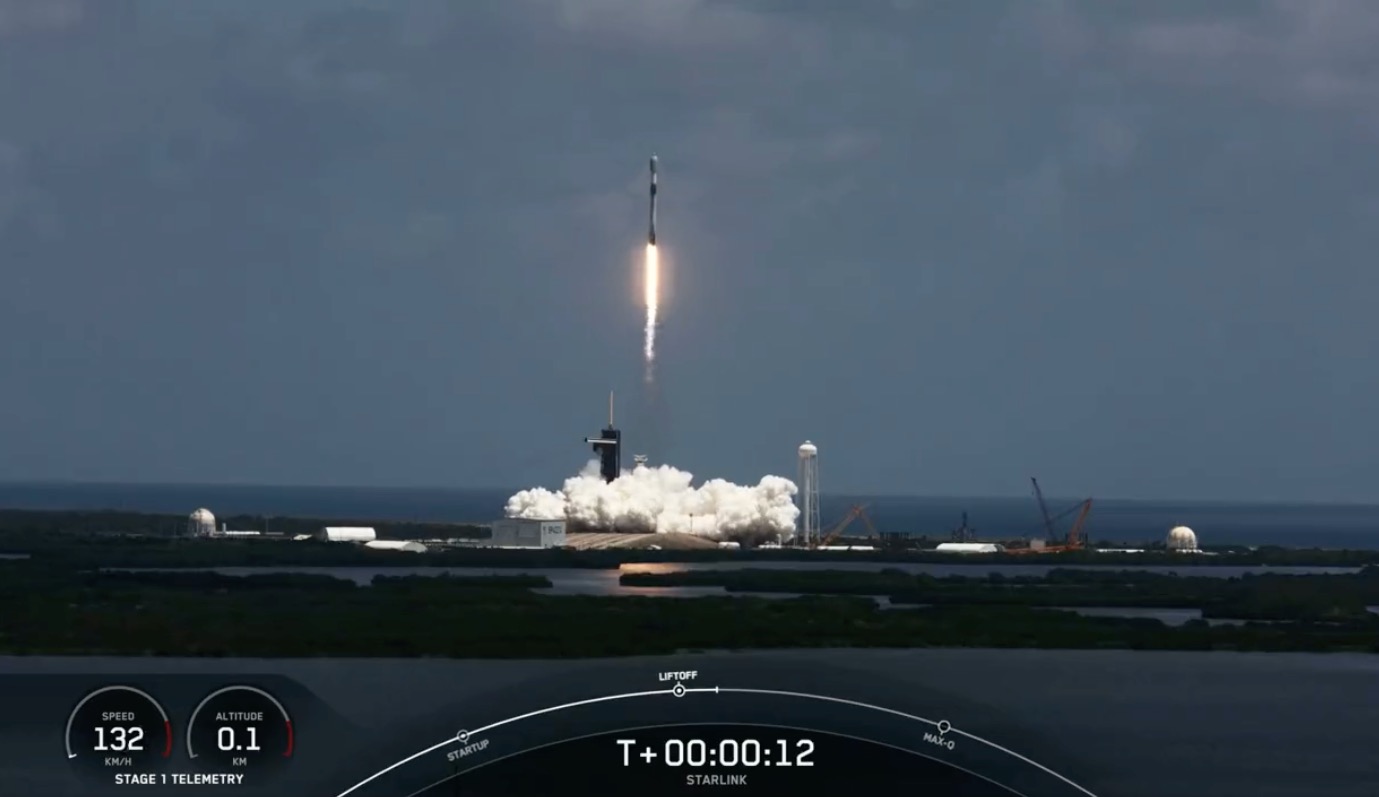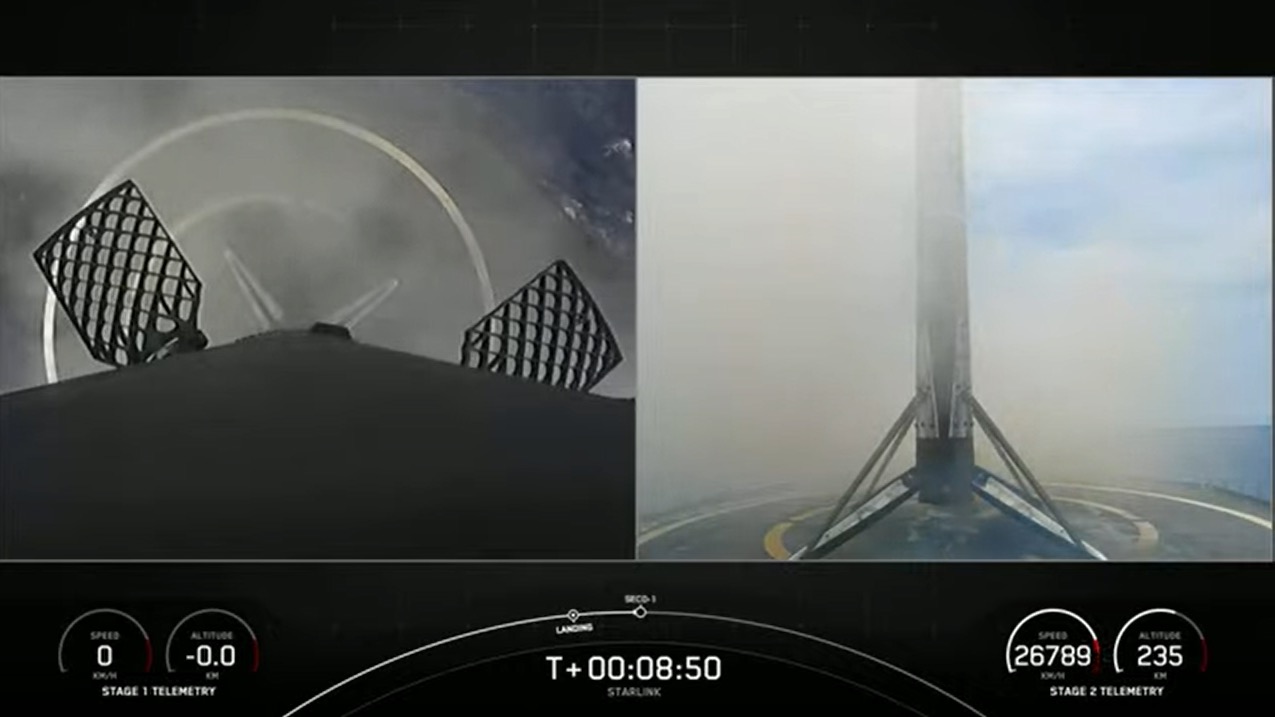SpaceX launched one of its Falcon 9 rockets for the 13th time today (June 17), setting a new reuse record.
The two-stage Falcon 9 lifted off from NASA's Kennedy Space Center in Florida today at 12:09 p.m. EDT (1609 GMT), carrying 53 of SpaceX's Starlink internet satellites to orbit. It was the first of three rocket launches in three days from three different pads that SpaceX plans to pull off.
The 53 satellites were deployed into low Earth orbit about 15.5 minutes after launch, as planned. But there was action before then as well: About 8.5 minutes after liftoff, the Falcon 9's first stage came down to Earth for a vertical landing on the SpaceX droneship A Shortfall of Gravitas, which was stationed in the Atlantic Ocean off the Florida coast.
Related: SpaceX's Starlink megaconstellation launches in photos

It was the 13th launch and landing for this Falcon 9 first stage, setting a new SpaceX reuse record. The booster previously helped loft a GPS satellite, a Turkish communications satellite, a variety of spacecraft on the Transporter 2 "rideshare" mission and nine Starlink batches, according to a SpaceX mission description.
Such extensive reflight is a big priority for SpaceX and its billionaire founder and CEO, Elon Musk. Musk has repeatedly said that rapid and complete reuse is the key breakthrough that will allow humanity to settle Mars and achieve a variety of other ambitious spaceflight feats.

Starlink is SpaceX's constellation of internet satellites. The company has now launched more than 2,700 Starlink craft to orbit, and the number will continue to increase far into the future; the next-generation version of the network could eventually consist of up to 30,000 satellites.
Get the Space.com Newsletter
Breaking space news, the latest updates on rocket launches, skywatching events and more!
Today's mission kicked off a planned rocket tripleheader for SpaceX, which also intends to launch a radar satellite for the German military on Saturday morning (June 18) and a commercial communications satellite early Sunday (June 19).
This intense 36-hour stretch will continue a very busy year for SpaceX. The company has already launched 24 missions in 2022, 15 of them dedicated Starlink flights.
Editor's note: This story was updated at 12:30 p.m. EDT (1630 GMT) on June 17 with news of successful liftoff, rocket landing and satellite deployment.
Mike Wall is the author of "Out There" (Grand Central Publishing, 2018; illustrated by Karl Tate), a book about the search for alien life. Follow him on Twitter @michaeldwall. Follow us on Twitter @Spacedotcom or on Facebook.
Join our Space Forums to keep talking space on the latest missions, night sky and more! And if you have a news tip, correction or comment, let us know at: community@space.com.

Michael Wall is a Senior Space Writer with Space.com and joined the team in 2010. He primarily covers exoplanets, spaceflight and military space, but has been known to dabble in the space art beat. His book about the search for alien life, "Out There," was published on Nov. 13, 2018. Before becoming a science writer, Michael worked as a herpetologist and wildlife biologist. He has a Ph.D. in evolutionary biology from the University of Sydney, Australia, a bachelor's degree from the University of Arizona, and a graduate certificate in science writing from the University of California, Santa Cruz. To find out what his latest project is, you can follow Michael on Twitter.









